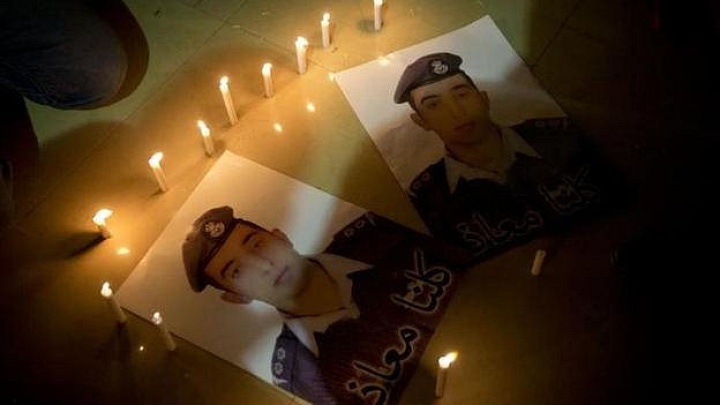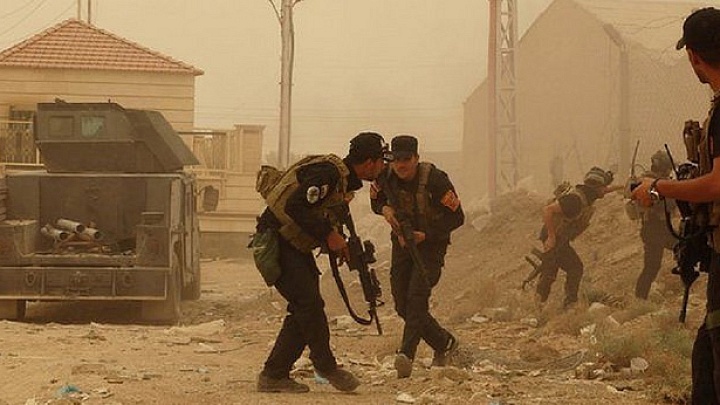In Democracy Promotion, you and Milja Kurki, your co-author, seek to provide an understanding of some of the key dynamics and contentions revolving around this policy agenda. In the post-9/11 era, many leaders, especially in the United States, have adopted the position that democracy is something that should be “promoted” because, in theory, democracies do not go to war and more democratic states would mean greater international stability. That’s the short version its supporters would give. What might its detractors have to say about the idea of “democracy promotion?”
The idea that democracy should be promoted in the world goes back much further than 9/11. It has been part of the U.S. foreign policy DNA certainly since President Woodrow Wilson’s 14 points discourse and, some would argue, since the inception of the Republic. The promotion of democracy really kicked off as part of U.S. foreign policy in the early 1990s after the collapse of the Soviet Union. With the ideological death of communism, there was room for liberal internationalists to push their agenda of democratization across the world, indeed founded on the belief that democracies do not tend to fight each other. The 1990s are often referred to as the golden age of democracy promotion.
Without an ideological rival, liberal democracy did spread rapidly in Eastern Europe but also in other parts of the world. Of course, hard-nose economic and security interests caused the U.S. to be accused of double standards as many autocracies, especially in the Middle East, were left untouched by U.S. push for political liberalization. And this is one of the main critiques of democracy promotion: Why does the U.S. push for democracy in some parts of the world but not others? Various U.S. administrations have been consistently criticized for a discrepancy between rhetoric and practice, between posing as a beacon of freedom on the one hand, and yet on the other hand offering determined support to autocratic regimes whenever needed. In summary, many believe that democracy acts as a smoke screen, hiding much more realistic and sinister interests the U.S. wishes to pursue. Democracy will be promoted as long as it does not jeopardize other U.S. interests.
Alongside this critique, others condemn democracy promotion as an instrument furthering U.S. hegemony and as a tool to insert free-market economy into developing countries. One of the most famous critiques is, of course, that democracy promotion is regime change in all but name. [The wars in] Afghanistan and Iraq are usually associated with this critique. Interestingly, the justification for the attack on Iraq did not refer to the promotion of freedom and democracy until no weapons of mass destruction were discovered. The focus on bringing freedom to Iraq, which in turn, would hopefully generate a wave of freedom engulfing the region, came much later. The formulation of Bush’s Freedom Agenda in 2006not in 2001 or 2003gives us a good idea about the role played by the promotion of democracy in justifying the invasion of Iraq. Nevertheless, both the war in Iraq and Afghanistan are firmly anchored in the mind of people as democracy promotion wars, with the objective of achieving regime change. This belief, in turn, created a backlash against democracy promotion, and the U.S. democracy promotion community especially is still licking its wounds. As a U.S. State Department official working on democracy promotion told me back in 2012: I do not tell people, even my friends, what exactly I do at work.
Democracy promotion involves a certain degree of intervention and mingling in the domestic affairs of a state. As such, democracy promotion is a form of regime change, even though far less dramatic than regime change through the use of force.
George W Bush’s “Freedom Agenda” seemed to embody the notion that we should push for democracy rather than wait for it to happen. Whenever seemingly positive events occur in the MENA region—early-days Egypt and the Arab Spring for example—Bush administration figures pop up to claim credit, yet they will not shoulder blame for the failures in democracy promotion, reconstruction, and nation building in Afghanistan and Iraq. Does this mean that democracy promotion is a failure?
Its a bit harsh to blame democracy promotion for the failures in Iraq and Afghanistan. If anything, I am pretty confident that U.S. Department of State’s and USAID’s officials working on democracy promotion must have been horrified when they witnessed how the promotion of freedom and democracy became the line of the Bush administration to sell the wars in Iraq and Afghanistan. Let us not forget that both reconstruction projects were led by the Pentagon, with little input from the Department of State or USAID.
I think that its important to differentiate between extreme high-profile cases such as the wars in Iraq and Afghanistan and low profile cases that constitute the bulk of the work done by the democracy promotion community. There is no doubt that the democracy promotion community – democracy support would be a more accurate term these days – does efficient work in some countries. This work is rarely in the spotlight for obvious reasons. Bad news sells better than good news. Political party formation training, conflict resolution or management programs, gender equality, anti-corruption, electoral assistance and so on are all themes constituting the bulk of democracy support work. Whether we like it or not, behind the grand discourses underpinning the Freedom Agenda are solid policies driven by dedicated and knowledgeable people who believe in what they do: Gradually liberalizing societies.
Having said that, we need to remember that the so-called Arab Spring was exclusively the work of mainly very young Tunisians, Egyptians, Yemenis, Jordanians, and Moroccans and so on, who had enough of rampant corruption and who were calling above all for social justice, dignity, and bread. Whether democratic ideals seeded by the Freedom Agenda played a role in the uprising is hard to determine. So, is democracy promotion a failure? No, I dont think so. There is no doubt that Afghanistan and Iraq do not constitute successes, but democracy support has proven efficient in supporting democratic transition in other countries where conditions were congenial to success.
Is democracy promotion just a way of dressing up regime change in a nicer package?
Democracy promotion is regime change. From the moment policies are designed and implemented with the objective to democratize a political regime that is obviously not democraticwhether semi-democratic or autocraticthe ultimate aim of democracy promotion is to achieve regime change, albeit through generating soft incremental change in targeted societies. Regime change, on the back of the Iraq and Afghan adventures has been associated with the use of force, either through covert or overt means. There are many other ways to generate a change of regime short of the use of violence: Threats, economic sanctions, diplomatic pressures, aid conditionality, and, yes, democracy promotion, and all can contribute to regime change. Even with softer means of intervention such as democracy promotion or democracy support, power relations and hierarchies are established. Democracy promotion involves a certain degree of intervention and mingling in the domestic affairs of a state. As such, democracy promotion is a form of regime change, even though far less dramatic than regime change through the use of force.
Is it really possible to promote democracy or does artificially creating it from the outside mean it is an enterprise doomed to fail? Does democracy have to be organic to take root?
During recent fieldwork in Tunisia, I had very interesting discussions about democracy promotion with the youth there. To the question What is democracy promotion? invariably replies included snickering followed by critiques of U.S. foreign policy: Democracy promotion is a product, an American brand, a hegemonic policy. Interestingly, the notion that democracy can be imposed was dismissed systematically: How a concept like democracy could be imposed? That would not be democratic! In the mind of young Tunisians, there is no doubt that the Western model of liberal democracy coupled to free market economy might not be ideal.
For democracy to succeed, whatever the model that would be adopted, it has to be organically developed. Ownership of the political and economic transition must be local. This is something democracy promoters know and tend to incorporate in their policy design and implementation. Yet, fundamentally, there is little deviation from the liberal democratic model and this causes substantial frustration for local populations because such a model is not always aligned with local values and preferences regarding the political and social future envisioned. Even though democracy promoters’ rhetoric puts the emphasis on the importance of the local, the lack of democratic alternatives to the populations receiving democracy aid makes the concept of the local as implemented by democracy promoters irrelevant: You can be democratic as long as you do not contest the dominance of liberal democracy and free market economy.
Should democracy promotion be abandoned as a project or does it have potential and we have just been doing it wrong?
I dont think that democracy promotion as a project will be abandoned any time soon by Western governments and international organisations. The Democratic Peace Theory (that democracies tend not to go to war with other democracies) is resilient in policymaking circles and there is an overall agreement that the more democracy in the world, the better. The key question is what kind of democracy are we talking about and how to promote it more efficiently. I suggest that there might be three pathways open to reflection here.
Firstly, there is a need to re-politicize the debate on democracy promotion through a realization that democracy can mean very different things to different people. Going beyond liberal democracy and the technical nature of democracy aid work is critical in order to deepen the meaning of democracy and open a genuine discussion with the populations receiving democracy aid about what they want their democracy to do for them.
Secondly, especially in the wake of the Arab Uprisings, when calls for social justice and dignity trumped calls for democracy and freedom, it is necessary for democracy promoters to investigate the connections between the political and the economy. Democracy aid is not only about political aid because all models of democracy have something to say about how the economy should work like. The model of liberal democracy plus free-market economy might not fit everyone.
Thirdly, and finally, it is critical for democracy promotion to become more sensitive to local contexts in which it operates. It is essential to acknowledge that in any given country, there is a multitude of actors and that all these actors might not necessarily agree with what the West preaches. The political future of their country is for them to decide upon, not for democracy promotion bureaucrats based in Brussels, Washington, London, or Paris to command.
Democracy Promotion: A Critical Introduction
Jeff Bridoux and Milja Kurki
134 pages; Routledge (UK), 2014; $48.95
[Photo: Flickr CC: JBLM PAO]
Jeff Bridoux is Lecturer in International Politics at Aberystwyth University, UK. He holds a BA in Political Science & International Relations and a Master in Political Science from the Université Libre de Bruxelles and a PhD from The University of Kent (Canterbury). His research interests are power in International Relations, American Foreign Policy, the Middle East and East Asia, post-conflict reconstruction, and democracy promotion and democratization.



The goal of Democracy promotion is more near to establishing a representative government, that by its practice and consent to its results, brings about a peaceful transition a peaceful transfer of powers that be.
Democracies do go to War. A peaceful consensus it what prevents War from beginning.